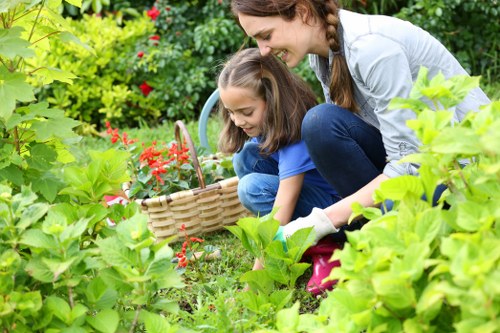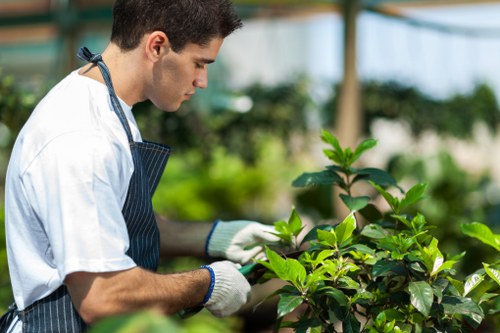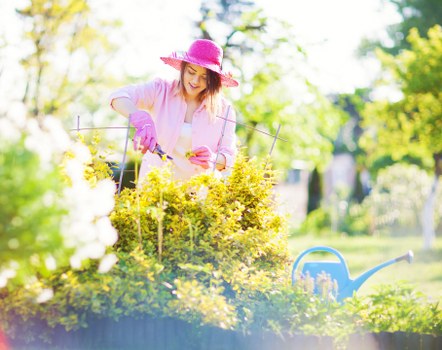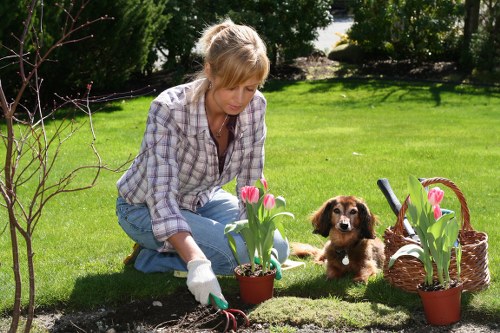Comprehensive Guide to Garden Maintenance for Every Gardener
Introduction to Garden Maintenance

Maintaining a beautiful garden requires dedication, knowledge, and the right techniques. Whether you're a seasoned gardener or just starting out, understanding the essentials of garden maintenance can transform your outdoor space into a thriving oasis.
Garden maintenance encompasses a variety of tasks aimed at ensuring plants remain healthy, vibrant, and free from pests and diseases. From regular watering and pruning to soil management and pest control, each aspect plays a critical role in the overall health of your garden.
In this article, we'll explore the fundamental principles of garden maintenance, providing you with practical tips and insights to keep your garden in top shape all year round.
Essential Tools for Effective Garden Care

Having the right tools is crucial for efficient garden maintenance. Investing in quality gardening tools can make your tasks easier and more enjoyable.
Here are some must-have tools every gardener should consider:
- Pruning Shears: Ideal for trimming and shaping plants.
- Garden Fork: Essential for aerating soil and removing weeds.
- Watering Can: Provides controlled watering for delicate plants.
- Gloves: Protect your hands from thorns, dirt, and potential allergens.
- Garden Kneeler: Offers comfort during extended periods of gardening.
Soil Management and Fertilization

Healthy soil is the foundation of a thriving garden. Proper soil management ensures that your plants receive the necessary nutrients and have a stable environment to grow.
Start by testing your soil's pH levels and nutrient content. Based on the results, you can amend the soil with the appropriate fertilizers and organic matter to improve its quality.
Regularly adding compost or well-rotted manure can enhance soil structure, increase fertility, and promote beneficial microbial activity. Additionally, mulching helps retain moisture, suppress weeds, and regulate soil temperature.
Watering Techniques for Optimal Plant Health

Proper watering is critical for plant health. Overwatering and underwatering are common mistakes that can lead to a variety of plant issues.
Best Practices:
- Water Early in the Morning: Reduces evaporation and allows plants to absorb moisture before the heat of the day.
- Deep and Infrequent: Encourages deep root growth and reduces the frequency of watering.
- Use Drip Irrigation: Provides targeted watering, minimizing water waste and preventing fungal diseases.
Always monitor the soil moisture levels to determine the best watering schedule for your specific plants and climate.
Pest and Disease Management

Protecting your garden from pests and diseases is essential for maintaining plant health. Integrated Pest Management (IPM) strategies offer effective and environmentally friendly solutions.
Key Strategies Include:
- Regular Monitoring: Inspect plants frequently to identify issues early.
- Biological Controls: Introduce beneficial insects like ladybugs to combat pests.
- Organic Pesticides: Use natural remedies to treat infestations without harming the ecosystem.
- Proper Sanitation: Remove diseased plant material to prevent the spread of pathogens.
By adopting these practices, you can effectively manage pests and diseases, ensuring a healthy and vibrant garden.
Seasonal Garden Maintenance Tasks
Different seasons bring unique challenges and opportunities for garden maintenance. Adapting your care routine to the changing seasons ensures year-round garden health.
Spring Maintenance
Spring is the perfect time to prepare your garden for the growing season. Focus on tasks like:
- Clearing debris from winter
- Pruning shrubs and trees
- Planting new bulbs and perennials
- Fertilizing early-blooming plants
Summer Maintenance
During the summer, concentrate on:
- Regular watering and mulching
- Deadheading spent flowers
- Controlling weeds
- Monitoring for pests and diseases
Autumn Maintenance
Autumn involves preparing your garden for the colder months by:
- Planting spring-flowering bulbs
- Raking and composting fallen leaves
- Protecting sensitive plants from frost
- Pruning after flowering
Winter Maintenance
In winter, focus on:
- Protecting plants from harsh weather
- Planning for the next gardening season
- Maintaining tools and equipment
Creating a Maintenance Schedule
Establishing a regular maintenance schedule helps ensure that no aspect of your garden is overlooked. Here's how to create an effective plan:
- Assess Your Garden's Needs: Identify the specific requirements of your plants and soil.
- Set Monthly Goals: Break down tasks into manageable monthly activities.
- Track Progress: Use a gardening journal or digital tool to monitor your maintenance efforts.
- Adjust as Needed: Be flexible and adjust your schedule based on seasonal changes and plant performance.
A well-structured maintenance schedule ensures consistent care and helps maintain the overall health and beauty of your garden.
Leveraging Professional Gardening Services
While DIY garden maintenance can be fulfilling, sometimes enlisting the help of professional gardeners can make a significant difference.
Benefits of Professional Services:
- Expertise: Professionals have the knowledge and experience to handle complex gardening tasks.
- Time-Saving: Saves you valuable time, allowing you to enjoy your garden without the stress of maintenance.
- Customized Care: Tailored maintenance plans to meet the specific needs of your garden.
- Enhanced Results: Achieve a more polished and thriving garden with expert care.
If you find garden maintenance overwhelming, consider reaching out to a local gardening service to help maintain your green space.
Eco-Friendly Gardening Practices
Adopting eco-friendly practices not only benefits your garden but also supports the environment. Here are some sustainable gardening tips:
- Composting: Recycle organic waste into nutrient-rich compost for your soil.
- Water Conservation: Implement rainwater harvesting and use drought-resistant plants.
- Organic Fertilizers: Use natural fertilizers to reduce chemical runoff.
- Native Plants: Choose native species that require less maintenance and are resilient to local conditions.
By integrating these practices, you contribute to a healthier ecosystem while maintaining a beautiful garden.
Final Tips for Successful Garden Maintenance
Maintaining a garden is a rewarding endeavor that requires patience and care. Here are some final tips to ensure your garden thrives:
- Stay Educated: Continuously learn about gardening techniques and plant care.
- Observe and Adapt: Pay attention to your garden's feedback and adjust your practices accordingly.
- Join a Gardening Community: Engage with other gardeners to share knowledge and experiences.
- Enjoy the Process: Take time to appreciate your garden and the peace it brings.
Remember, successful garden maintenance is a blend of knowledge, dedication, and a love for nature.
Contact us today to learn more about our professional garden maintenance services and take the first step toward a thriving garden!



